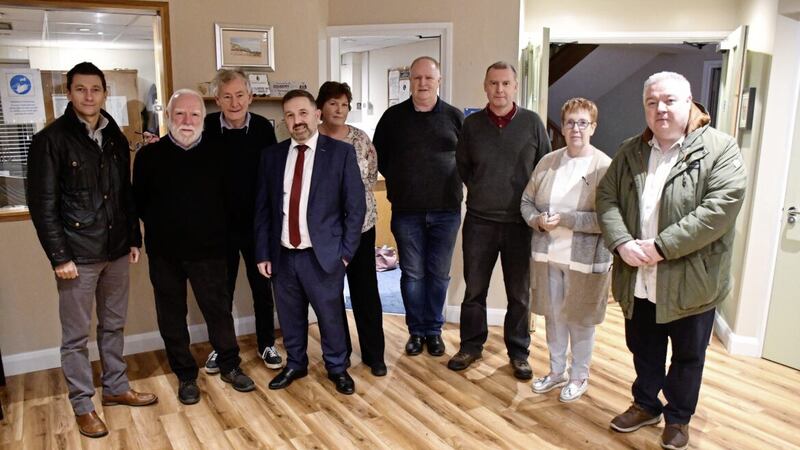EVERY so often it seems, the ‘noise’ of addiction crashes into our breaking news. Stories of homelessness, deaths caused by overdose and polydrug use, anguished cries from families and friends, make the headlines.
What is being done, what should be done, is aired. The problem of harmful addictive substance misuse is acknowledged to be complex and needing diverse solutions. And then the consciousness tends to fade away - usually.
However, even amid huge current issues, there is a growing sense that the problem of drug misuse with its attendant consequences, is worsening and deepening. The death rates from alcohol and drug misuse, across these islands, have reached alarming and painful proportions. 1,245 people died in Scotland because of alcohol abuse in 2021. In Northern Ireland in 2021, 350 people died an alcohol specific death. Drug deaths in Scotland in 2021 totalled 1,339 people. Here, in 2020, 218 people died.
Scotland and Northern Ireland have the highest rate per 100.000 of alcohol and drug deaths but England and Wales are also experiencing an increase, especially in drug related deaths. Health inequalities are an added factor with areas of social deprivation 4x to 5x times at greater risk of harm and death.
In Northern Ireland a strategic framework to tackle the harm from substance misuse was launched, by then minister of health, Robin Swann in 2021, entitled Making Life Better – Preventing Harm and Empowering Recovery. The two pillars of harm prevention, and enabling recovery, are at the heart of the various governments’ responses.
The need for residential rehabilitation as a necessary part in empowering recovery is receiving new emphasis. For several decades emphasis on tackling substance misuse had swung strongly to harm reduction and substitution therapy. Money for residential rehabilitation decreased. The beds which remained lay almost exclusively in the private and charitable sectors.
Harm prevention, in all its manifestations, including information, education, early intervention, harm reduction, substitution therapy, has played an important and valuable role and will continue to do so.
However, the death rates are clearly indicating that it is not enough. Death rates do not lie. Addiction is complex, deep rooted and chronic. Residential treatment offers the time and space needed to focus attention and build long term support. There will always be a percentage of addicted people who are unlikely to achieve recovery without residential rehabilitation. The evidence has shown that rehabilitation is linked to improvements in mental health, relationships, offending, social engagement, employment, reduction in use and abstinence.
Over time, an established rehabilitation centre develops a community of recovery which offers support and challenges the hopelessness and fear surrounding addictive use. The place of rehabilitation in helping to support and achieve a healthy life is being more fully recognised. This health focused model of care is indicative of the shifts in policy, not only here but in Scotland, England and Wales and the Republic. Millions of pounds are now being allocated in these countries to support existing rehabilitation beds, make access easier and increase residential capacity.
In Northern Ireland, Northlands has been in existence for almost 50 years. During that time, it offered residential and non- residential treatment. It has seen the impact and worth of residential treatment on the lives of individuals, their families, friends, and work colleagues. A body of people living productive, flourishing lives has grown up, bearing witness to the fact that death is preventable, and recovery is possible and enriching.
Knowing this, Northlands is seeking to establish a new centre of excellence which will serve all of Northern Ireland. A centre that will continue the work it has been doing steadily over the last 50 years but also a centre capable of dealing with the increased complexity of the times. Patterns of drug use have changed, polydrug use has become the norm in sections of our society, mental health problems interact with harmful and addictive use and pressures on family life have deepened. It is presently inviting and challenging governments, political parties, health and social care authorities to recognise and resource this project. One of the most encouraging lessons that Northlands has learned over the years is that recovery is contagious. For the greatest number of people to recover, a range of options are necessary and one of the most vital options that should be offered is residential rehabilitation.
:: Mary Wilson is a board member of Northlands Addiction Treatment Centre.


